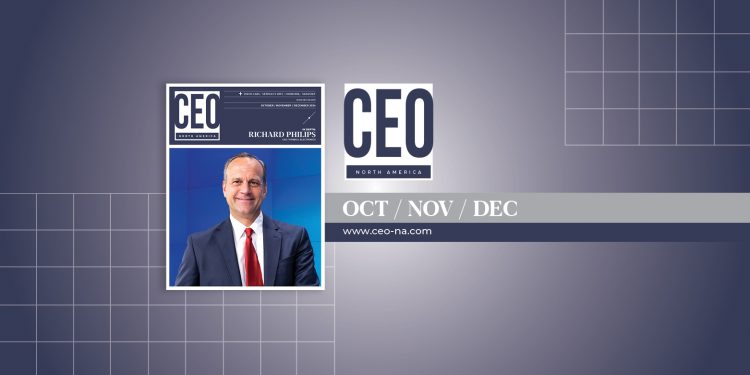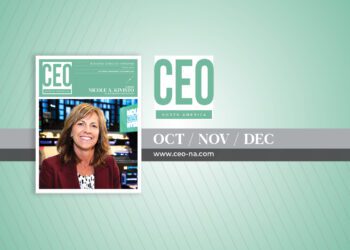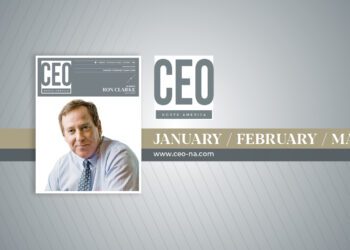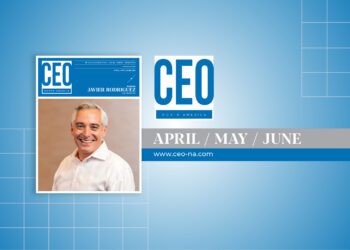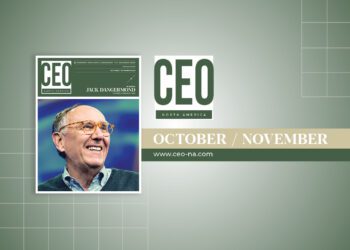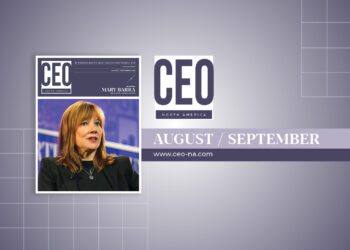A Looming Election and Tough Economic Choices
CEO North America / October – November – December 2024
An election looms in the United States. On Nov. 5, Americans will go to the polls to pick a new president, a new House of Representatives, a third of the Senate and sundry governors and other officials across the 50 states.
The country is divided, and at press time, the race for president between Vice President Kamala Harris and former-president Donald J. Trump is neck and neck. The difference between the candidates in many polls is within those surveys’ own margins of error.
And while most Americans have decided who they will support, in the C-suite there are many who still have doubts about which candidate, Trump or Harris, will be best for their business.
The dilemma for many is this. Trump’s promise of less regulation and lower taxes is a traditionally pro-business stance and is backed by his record of cutting regulation and taxes during his 2019-2022.
Harris is seen by many as a competent centrist, but she remains relatively unknown in much of the country. Her four years as President Joe Biden’s vice-president comes with a record of economic growth, job creation and revival after the Covid lockdown, but it also comes with Biden’s record of more strict regulation of the financial industry and call to fight the deficit with higher taxes, which many businesses oppose.
Trump’s support of lower taxes and higher tariffs on foreign goods, however, is not universal in the business world. Many economists and executives believe higher tariffs will boost inflation and close foreign markets to U.S. goods. Cutting taxes, many economists believe, will cause the U.S. government deficit to balloon, boosting interest rates and reducing growth. Others fear the spending cuts needed to justify tax cuts would create dangerous social and political strife.
And even those who consider Harris less potentially disruptive to economic and political policy are concerned any tax hikes she promotes will come with higher spending, undermining any deficit-reduction benefits of higher taxes.
Which is leading some to hope for divided government. That would mean the presidency and at least one house of Congress would in the control of different parties, making radical change by either Trump or Harris more difficult and encouraging compromise.
On the other hand, divided government is what the U.S. has had since January 2019 at the start of the second half of the Trump presidency, and government approval levels among the general public are near historic lows. Some blame divided government for the failure to solve critical issues such as the deficit and immigration.
And the effects of the election will go beyond the United States itself. The tariff issue will be especially important to executives in Mexico and Canada, who won’t be able to vote but whose businesses will be affected by any change in access to U.S. markets adopted by the next president.
In Mexico’s case, the position the next president takes on immigration — and both Trump and Harris are promising to crack down on illegal entry into the U.S. from Mexico to varying degrees — will have an impact on Mexican politics and its economy.
Whatever the ultimate result on Nov 5, the stakes are high. A good vote is a careful vote.
̶ Stuart James, Editorial Director
Would your business benefit from our executive and investor readership in 2024? Get in touch at editorials@ceo-na.com
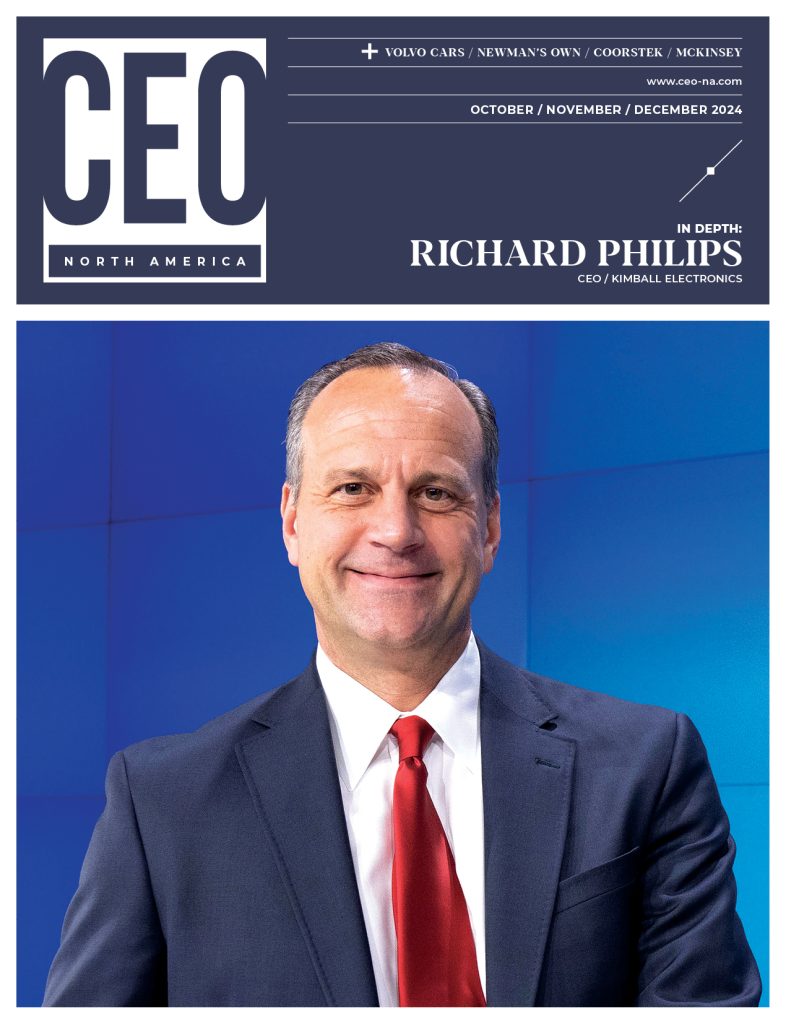

In Depth Interviews with…
058-065 Richard Phillips, CEO / Kimball Electronics
066-073 David Best, President & CEO / Newman’s Own, Inc
074-081 Peter C. Durette, CEO / Intertape Polymer Group Inc.
082-089 Benjamin Urban, CEO / DIRTT Environmental Solutions Ltd.
090-095 Michael Cottone, President, USA & Canada / Volvo Cars AB
096-101 Alex Panas, Global Leader of Industry Sectors / McKinsey & Company
102-107 Andrew Filson, President / CoorsTek

